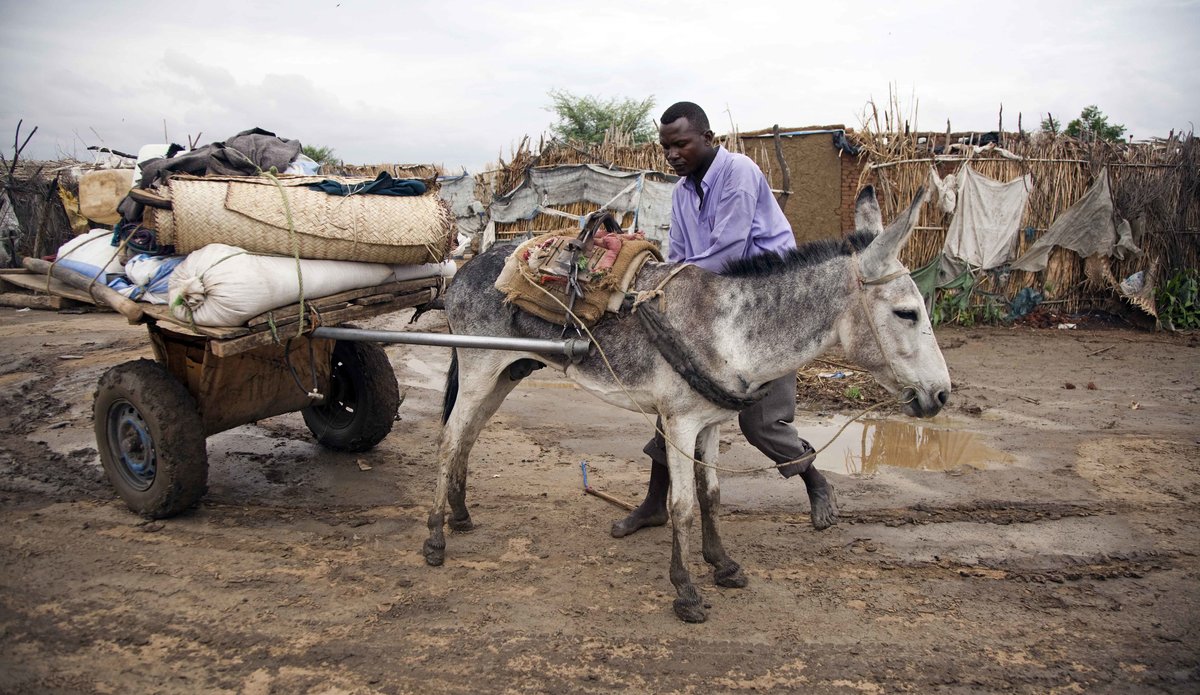
Lack of Food Claims Lives of Dozens in South Darfur Displacement Camp
moatinoon
The administration of Kalma Camp, under the General Administration of Displaced Persons and Refugees Camps, announced the deaths of dozens of children, pregnant women, and elderly people, along with cases of child paralysis. They expect more deaths in the coming days due to hunger, malnutrition, and lack of medicine and vaccinations.
In a statement on Monday, Isaac Mohammed Abdullah, the head of Kalma Camp, reported that 66 children, 38 elderly people, and 6 pregnant women had died within a month in the camp due to malnutrition and lack of medicine.
Isaac described this as the worst death toll since the camps establishment. He warned that the coming days would see more deaths, noting that the repeated appeals by the General Administration of Displaced Persons and Refugees Camps for humanitarian aid had failed and fallen on deaf ears.
He renewed his call to the United Nations and humanitarian organizations for a swift response to provide aid to the displacement camps.
Kalma Camp, which has housed displaced persons for over 20 years since the outbreak of war in Darfur in 2003, is located 17 kilometers from Nyala, the capital of South Darfur State, which is controlled by the Rapid Support Forces. It is one of the largest displacement camps in the country.
Many regions in Darfur suffer from severe food shortages. In February, Mťdecins Sans FrontiŤres reported that a child dies every two hours in Zamzam Camp for displaced persons in North Darfur State due to malnutrition.
Zamzam Camp is the largest displacement camp in Darfur, hosting more than 400,000 people displaced by the conflict in the region since 2003 between Khartoum and Darfur movements.
An analysis published last November by the Integrated Food Security Phase Classification (IPC) initiative, a global partnership of 15 UN agencies and regional institutions, revealed that 5.83 million people in Sudan are experiencing acute food insecurity.
A preliminary analysis by the World Food Programme (WFP) identified 41 areas at high risk of sliding into famine next month, most of them in conflict-torn regions, including Darfur, Kordofan, and Khartoum.
The UN and international NGOs accuse the warring parties of obstructing aid delivery to those affected by the conflict in many parts of the country, demanding the opening of corridors to deliver aid to civilians within Sudan and across borders from Chad and South Sudan.
Last week, Karl Skau, WFPs Deputy Executive Director, reported that officials he met during his visit to Sudan, including a member of the Sudanese Sovereignty Council, the Humanitarian Aid Commissioner, and the Sudanese Minister of Agriculture, acknowledged the severity of the situation and committed to facilitating deliveries through the Tina border crossing from Chad to North Darfur and considering allowing WFP convoys to pass through the currently closed Adrť border crossing.
However, he stressed that "the commitments made by all parties to facilitate humanitarian access must urgently be translated into reality on the ground."

